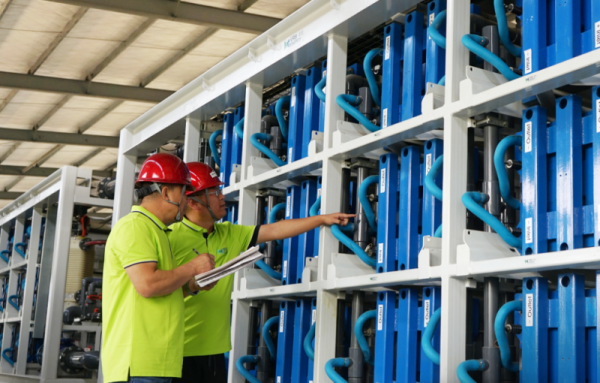An American scientific breakthrough – a vanadium redox flow battery, designed initially in a US government lab, then developed by a company over many years in Washington State – struggled to find backers in the United States, so the technology ended up being given, under license, to a manufacturer in China in 2021 by the US Department of Energy, an NPR investigation has found.
$15 million worth of taxpayers money was spent developing a battery the size of a fridge that could power a house for three decades, according to the report, which said all American employees at UniEnergy Technologies employees were laid off, and the battery developed in 5,200 miles away in the Chinese city of Dalian, after the US federal agency violated its own rules aimed at protecting technology and jobs. Another company in the US trying to get the same technology says the department’s decision – now being reviewed – was “mind-boggling”, the report added.
Read the full report: NPR.
SEE MORE:
China’s Gotion Plans to Have 33% of EV Battery Plants Abroad
China Battery Makers Gain Global Share as Lithium Soars: Credit Suisse
SK Innovation to Pump $1 Billion Into New China Battery Factory
























